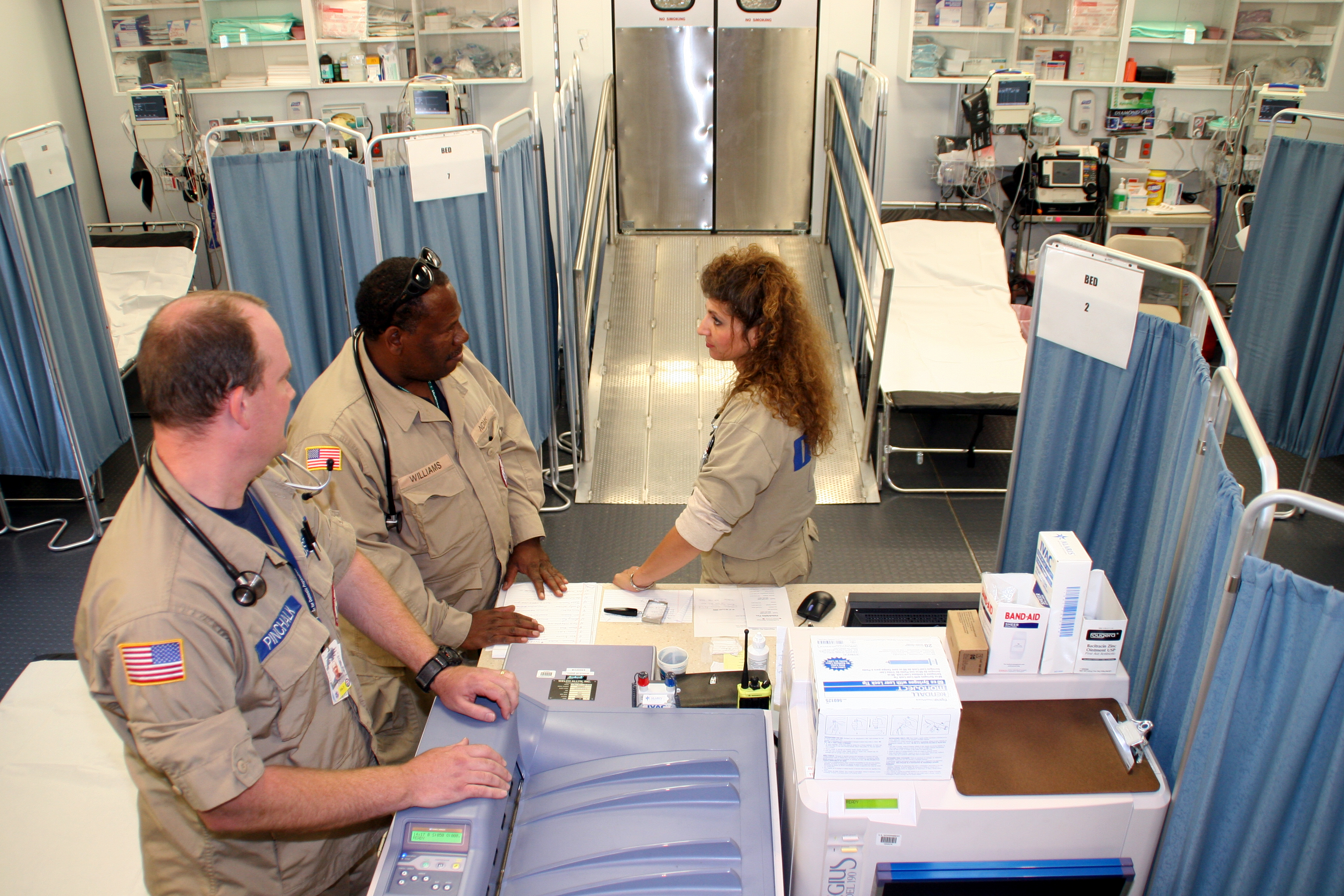|
Acute Medicine
Acute medicine is a specialty within internal medicine concerned with the immediate and early specialist management of adult patients with a wide range of medical conditions who present in hospital as emergencies. It developed in the United Kingdom in the early 2000s as a dedicated field of medicine, together with the establishment of acute medical units in numerous hospitals. Acute medicine is distinct from the broader field of emergency medicine, which is concerned with the management of all people attending the emergency department, not just those with internal medicine diagnoses. History The field developed in the United Kingdom after the Royal College of Physicians of Edinburgh and the Royal College of Physicians and Surgeons of Glasgow published a joint report in 1998 emphasising the importance of appropriate care for people with acute medical problems. Further reports led to the development of acute medicine as a dedicated specialty, and in 2003 it was recognised by the Spec ... [...More Info...] [...Related Items...] OR: [Wikipedia] [Google] [Baidu] |
Medical Emergency
A medical emergency is an acute injury or illness that poses an immediate risk to a person's life or long-term health, sometimes referred to as a situation risking "life or limb". These emergencies may require assistance from another, qualified person, as some of these emergencies, such as cardiovascular (heart), respiratory, and gastrointestinal cannot be dealt with by the victim themselves.AAOS 10th Edition Orange Book Dependent on the severity of the emergency, and the quality of any treatment given, it may require the involvement of multiple levels of care, from first aiders through emergency medical technicians, paramedics, emergency physicians and anesthesiologists. Any response to an emergency medical situation will depend strongly on the situation, the patient involved, and availability of resources to help them. It will also vary depending on whether the emergency occurs whilst in hospital under medical care, or outside medical care (for instance, in the street or alone ... [...More Info...] [...Related Items...] OR: [Wikipedia] [Google] [Baidu] |
United Kingdom
The United Kingdom of Great Britain and Northern Ireland, commonly known as the United Kingdom (UK) or Britain, is a country in Europe, off the north-western coast of the continental mainland. It comprises England, Scotland, Wales and Northern Ireland. The United Kingdom includes the island of Great Britain, the north-eastern part of the island of Ireland, and many smaller islands within the British Isles. Northern Ireland shares a land border with the Republic of Ireland; otherwise, the United Kingdom is surrounded by the Atlantic Ocean, the North Sea, the English Channel, the Celtic Sea and the Irish Sea. The total area of the United Kingdom is , with an estimated 2020 population of more than 67 million people. The United Kingdom has evolved from a series of annexations, unions and separations of constituent countries over several hundred years. The Treaty of Union between the Kingdom of England (which included Wales, annexed in 1542) and the Kingdom of Scotland in 170 ... [...More Info...] [...Related Items...] OR: [Wikipedia] [Google] [Baidu] |
Emergency Medicine
Emergency medicine is the medical speciality concerned with the care of illnesses or injuries requiring immediate medical attention. Emergency physicians (often called “ER doctors” in the United States) continuously learn to care for unscheduled and undifferentiated patients of all ages. As first-line providers, in coordination with Emergency Medical Services, they are primarily responsible for initiating resuscitation and stabilization and performing the initial investigations and interventions necessary to diagnose and treat illnesses or injuries in the acute phase. Emergency physicians generally practise in hospital emergency departments, pre-hospital settings via emergency medical services, and intensive care units. Still, they may also work in primary care settings such as urgent care clinics. Sub-specializations of emergency medicine include; disaster medicine, medical toxicology, point-of-care ultrasonography, critical care medicine, emergency medical services, hy ... [...More Info...] [...Related Items...] OR: [Wikipedia] [Google] [Baidu] |
Emergency Department
An emergency department (ED), also known as an accident and emergency department (A&E), emergency room (ER), emergency ward (EW) or casualty department, is a medical treatment facility specializing in emergency medicine, the acute care of patients who present without prior appointment; either by their own means or by that of an ambulance. The emergency department is usually found in a hospital or other primary care center. Due to the unplanned nature of patient attendance, the department must provide initial treatment for a broad spectrum of illnesses and injuries, some of which may be life-threatening and require immediate attention. In some countries, emergency departments have become important entry points for those without other means of access to medical care. The emergency departments of most hospitals operate 24 hours a day, although staffing levels may be varied in an attempt to reflect patient volume. History Accident services were provided by workmen's compensation ... [...More Info...] [...Related Items...] OR: [Wikipedia] [Google] [Baidu] |
Royal College Of Physicians Of Edinburgh
The Royal College of Physicians of Edinburgh (RCPE) is a medical royal college in Scotland. It is one of three organisations that sets the specialty training standards for physicians in the United Kingdom. It was established by Royal charter in 1681. The college claims to have 12,000 fellows and members worldwide. History The RCPE was formed by a royal charter, granted in 1681, with Sir Robert Sibbald recognised as playing a key part in the negotiations. Three applications preceded this and had been unsuccessful. There were 21 original Fellows, eleven of whom were graduates or students of the University of Leiden. The Universities (Scotland) Act 1858 resulted in several items from the College's Charter becoming obsolete, and they obtained a further charter on 31 October 1861. In 1920 the College enacted changes that allowed women to be admitted on the same terms as men. The charter was amended on 7 May 2005. Edinburgh Pharmacopoeia In 1699 The College first published a ... [...More Info...] [...Related Items...] OR: [Wikipedia] [Google] [Baidu] |
Royal College Of Physicians And Surgeons Of Glasgow
The Royal College of Physicians and Surgeons of Glasgow, is an institute of physicians and surgeons in Glasgow, Scotland. Founded by Peter Lowe after receiving a royal charter by James VI in 1599, as the Glasgow Faculty, it originally existed as a regulatory authority to ensure that physicians, surgeons and dentists In the West of Scotland were appropriately trained and regulated. In 1909, it achieved Royal recognition and became the Royal Faculty of Physicians and Surgeons of Glasgow (RFPSG). In 1962, following agreement with the other medical and surgical Royal Colleges in the UK it achieved collegiate status as the Royal College of Physicians and Surgeons of Glasgow (RCPSG), by which name it is known today. The College, in combination with the Royal College of Physicians of Edinburgh and the Royal College of Surgeons of Edinburgh provided a primary medical qualification which entitled the bearer to practice medicine, and was registerable with the General Medical Counc ... [...More Info...] [...Related Items...] OR: [Wikipedia] [Google] [Baidu] |
Intensive Care
Intensive care medicine, also called critical care medicine, is a medical specialty that deals with seriously or critically ill patients who have, are at risk of, or are recovering from conditions that may be life-threatening. It includes providing life support, invasive monitoring techniques, resuscitation, and end-of-life care. Doctors in this specialty are often called intensive care physicians, critical care physicians or intensivists. Intensive care relies on multidisciplinary teams composed of many different health professionals. Such teams often include doctors, nurses, physical therapists, respiratory therapists, and pharmacists, among others. They usually work together in intensive care units (ICUs) within a hospital. Scope Patients are admitted to the intensive care unit if their medical needs are greater than what the general hospital ward can provide. Indications for the ICU include blood pressure support for cardiovascular instability (hypertension/hypotension ... [...More Info...] [...Related Items...] OR: [Wikipedia] [Google] [Baidu] |
High-dependency Unit
A high-dependency unit is an area in a hospital, usually located close to the intensive care unit, where patients can be cared for more extensively than on a normal ward, but not to the point of intensive care. It is appropriate for patients who have had major surgery and for those with single-organ failure. Many of these units were set up in the 1990s when hospitals found that a proportion of patients was requiring a level of care that could not be delivered in a normal ward setting. This is thought to be associated with a reduction in mortality. Patients may be admitted to an HDU bed because they are at risk of requiring intensive care admission, or as a step-down between intensive care and ward-based care. In 2000 the UK Department of Health issued the ''Comprehensive Critical Care'' report, which set out the number of high dependency ("level 2") beds a hospital should have to deliver care appropriately. By this time, two thirds of UK hospitals had beds identified as "high depen ... [...More Info...] [...Related Items...] OR: [Wikipedia] [Google] [Baidu] |
Robert Wachter
Robert M. "Bob" Wachter is an academic physician and author. He is on the faculty of University of California, San Francisco, where he is chairman of the Department of Medicine, the Lynne and Marc Benioff Endowed Chair in Hospital Medicine, and the Holly Smith Distinguished Professor in Science and Medicine. He is generally regarded as the academic leader of the hospitalist movement, the fastest growing specialty in the history of modern medicine. He and a colleague, Lee Goldman, are known for coining the term "hospitalist" in a 1996 ''New England Journal of Medicine'' article. Education Wachter attended college and medical school at the University of Pennsylvania. He completed a residency and chief residency in internal medicine at UCSF, then was a Robert Wood Johnson Clinical Scholar in Health Policy, Ethics, and Epidemiology at Stanford University. He joined the faculty at UCSF in 1990. In 2011, Wachter studied patient safety and hospital medicine at Imperial College London ... [...More Info...] [...Related Items...] OR: [Wikipedia] [Google] [Baidu] |
Deep Vein Thrombosis
Deep vein thrombosis (DVT) is a type of venous thrombosis involving the formation of a blood clot in a deep vein, most commonly in the legs or pelvis. A minority of DVTs occur in the arms. Symptoms can include pain, swelling, redness, and enlarged veins in the affected area, but some DVTs have no symptoms. The most common life-threatening concern with DVT is the potential for a clot to embolize (detach from the veins), travel as an embolus through the right side of the heart, and become lodged in a pulmonary artery that supplies blood to the lungs. This is called a pulmonary embolism (PE). DVT and PE comprise the cardiovascular disease of venous thromboembolism (VTE). About two-thirds of VTE manifests as DVT only, with one-third manifesting as PE with or without DVT. The most frequent long-term DVT complication is post-thrombotic syndrome, which can cause pain, swelling, a sensation of heaviness, itching, and in severe cases, ulcers. Recurrent VTE occurs in about 30% of those i ... [...More Info...] [...Related Items...] OR: [Wikipedia] [Google] [Baidu] |
NHS Institute For Innovation And Improvement
The NHS Institute for Innovation and Improvement (NHS Institute) was a special health authority of the National Health Service in England. It supported "the NHS to transform healthcare for patients and the public by rapidly developing and spreading new ways of working, new technology and world-class leadership". Its priority programmes were originally stated as: *Safer care *Quality and value *Building capability *Commissioning *No delays *The productive series *Share and network In its 2008/2009 work plan these were restated as: *Safer care *Delivering quality and value *Commissioning for health improvement *iLinks *Building capability for a self-improving NHS *Exploiting innovation - National Innovation Centre The NHS Institute published papers on its research. These are not, however, publicly available without payment. It closed in March 2013. It was replaced by 'NHS Improving Quality', which was subsequently replaced by 'The Sustainable Improvement Team'. NHS Natio ... [...More Info...] [...Related Items...] OR: [Wikipedia] [Google] [Baidu] |





